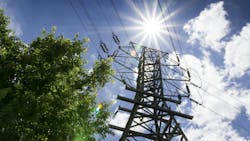DOE Issues Emergency Order to Maintain Midwest Grid Reliability Ahead of Summer Demand
On May 23, the U.S. Department of Energy (DOE) issued an emergency order to address potential electricity reliability concerns in the Midwestern United States during the upcoming summer months. The order, issued by Secretary of Energy Chris Wright, directs the Midcontinent Independent System Operator (MISO) to coordinate with Consumers Energy to keep the J.H. Campbell Power Plant in West Olive, Michigan available for operation.
The J.H. Campbell plant, a 1,560-megawatt coal-fired facility, was scheduled for retirement on May 31. However, the DOE determined that its continued availability is necessary to help prevent electricity capacity shortfalls and reduce the risk of blackouts during peak summer demand.
The order was authorized under Section 202(c) of the Federal Power Act, which permits emergency measures to ensure the reliability of the electric grid. The DOE’s Office of Cybersecurity, Energy Security, and Emergency Response (CESER) issued the directive in line with a broader federal initiative focused on national energy reliability and resilience.
Reliability Concerns
The decision follows recent assessments by the North American Electric Reliability Corporation (NERC), which identified the MISO region as being at an elevated risk of operating reserve shortfalls during periods of high summer demand. Contributing factors include the planned retirement of thermal generation resources and reduced solar output during late summer afternoons.
NERC’s 2025 Summer Reliability Assessment notes that while most regions are expected to have adequate generation under normal conditions, tighter margins may occur due to increased electricity demand, reduced availability from renewable resources during certain periods, and ongoing generator retirements.
The Federal Energy Regulatory Commission (FERC) also issued its 2025 Summer Assessment, indicating that load is expected to be higher than in previous years, driven in part by the growth of large-scale data centers and other industrial users. The assessment also notes a projected increase in wholesale electricity prices compared to summer 2024, due in part to higher natural gas prices and lower-than-average storage levels following a colder winter.
Executive Actions on Nuclear Energy and Scientific Standards
Also on May 23, the White House announced a series of executive actions aimed at advancing nuclear energy development and enhancing scientific standards across federal research agencies.
New executive orders aim to promote the deployment of advanced nuclear technologies by supporting reactor testing at DOE national laboratories, enabling construction on federal lands, and directing regulatory reforms intended to streamline the licensing process. These measures are designed to increase domestic nuclear energy capacity and support energy reliability.
In addition, a separate executive order was signed to implement what is termed “Gold Standard Science” across federal agencies. This initiative emphasizes transparency, reproducibility, peer review, and the disclosure of uncertainties in scientific research. The goal is to strengthen the integrity of federally funded science and promote best practices in collaboration with academic and industry partners.
These actions are intended to support long-term energy security, advance scientific innovation, and help meet growing electricity demand through both traditional and emerging energy sources.
About the Author
Christina Marsh
Senior Editor
Christina Marsh is senior editor of T&D World at Endeavor Business Media (EBM), responsible for managing, editing, and contributing to the print issue production in addition to e-newsletters and digital content including podcasts. Previously, Christina was editor of Airport Business at EBM where she was responsible for contributing editorial support for the magazine, writing and compiling e-newsletters as well as contributing to digital content including producing video and podcasts. Before working with EBM, Christina was a multimedia journalist and podcast producer at The Experimental Aircraft Association (EAA). She graduated with a B.S. in journalism from the University of Wisconsin Oshkosh.

